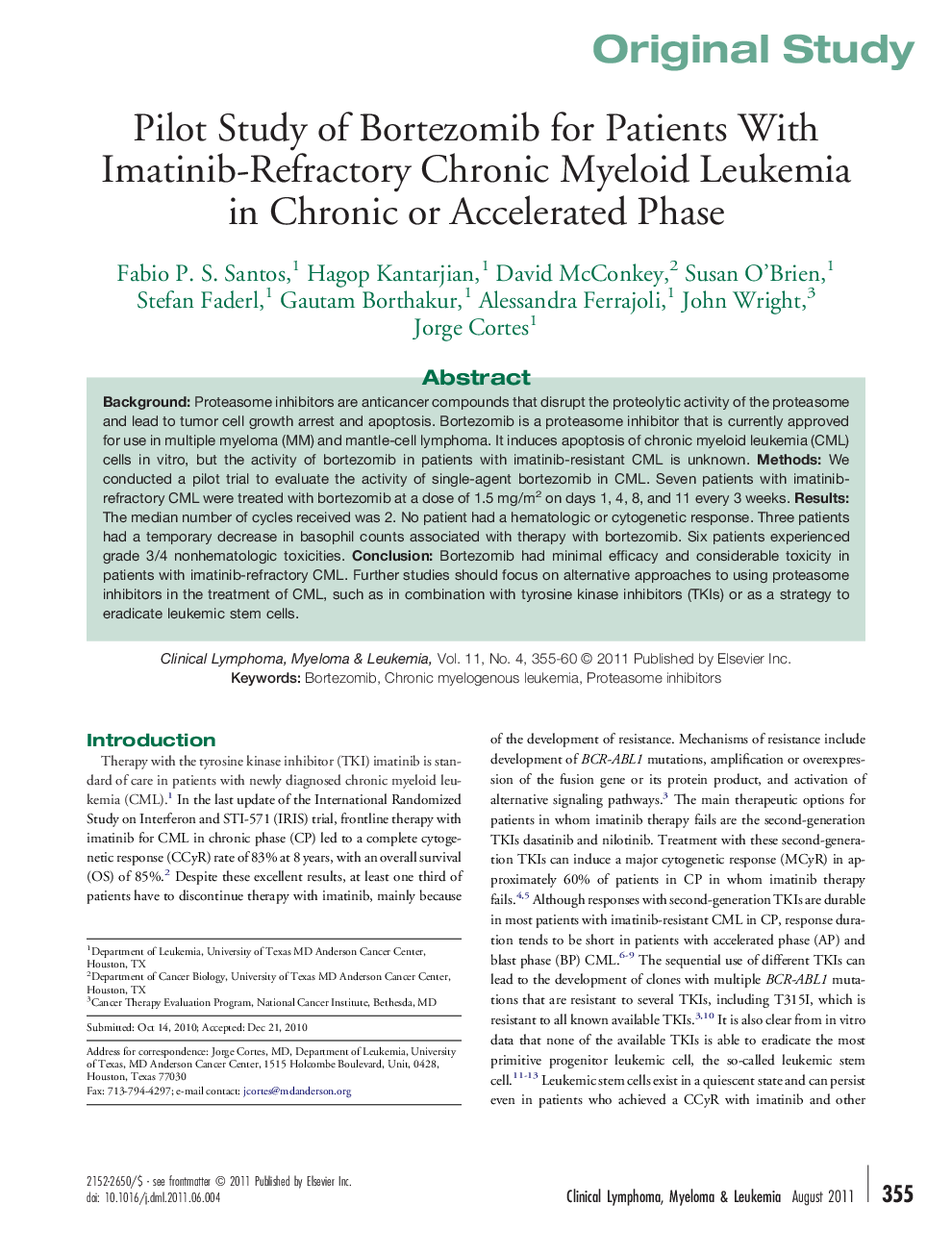| Article ID | Journal | Published Year | Pages | File Type |
|---|---|---|---|---|
| 2754565 | Clinical Lymphoma Myeloma and Leukemia | 2011 | 6 Pages |
BackgroundProteasome inhibitors are anticancer compounds that disrupt the proteolytic activity of the proteasome and lead to tumor cell growth arrest and apoptosis. Bortezomib is a proteasome inhibitor that is currently approved for use in multiple myeloma (MM) and mantle-cell lymphoma. It induces apoptosis of chronic myeloid leukemia (CML) cells in vitro, but the activity of bortezomib in patients with imatinib-resistant CML is unknown.MethodsWe conducted a pilot trial to evaluate the activity of single-agent bortezomib in CML. Seven patients with imatinib-refractory CML were treated with bortezomib at a dose of 1.5 mg/m2 on days 1, 4, 8, and 11 every 3 weeks.ResultsThe median number of cycles received was 2. No patient had a hematologic or cytogenetic response. Three patients had a temporary decrease in basophil counts associated with therapy with bortezomib. Six patients experienced grade 3/4 nonhematologic toxicities.ConclusionBortezomib had minimal efficacy and considerable toxicity in patients with imatinib-refractory CML. Further studies should focus on alternative approaches to using proteasome inhibitors in the treatment of CML, such as in combination with tyrosine kinase inhibitors (TKIs) or as a strategy to eradicate leukemic stem cells.
